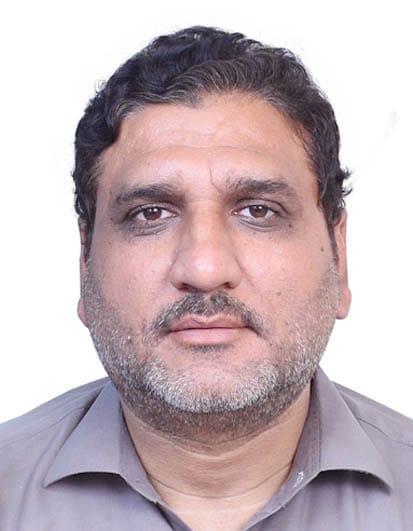Shahzad Rasheed
A recent military operation in Bajaur has displaced tens of thousands of
People, trapping hundreds of thousands under a strict curfew, leading to
Protests over the lack of financial and food aid for those living outside
government relief camps. Protesting families criticize the government
failure to adequately register and support internally displaced persons
(IDPs), many of whom are poor and have been forced to abandon their
homes and belongings due to military action, shelling, and
Communication blackouts. There are urgent calls for the government to
Provide necessary assistance and address the complex humanitarian
Crisis .
IDPs, or Internally Displaced Persons, are individuals who have been
forced to flee their homes and communities but remain within the
borders of their own country. They are distinct from refugees, who cross
international borders to seek safety. Internally Displaced Persons (IDPs)
in Pakistan face challenges including lack of basic necessities like food,
shelter, and healthcare; issues with accessing education and
employment; social problems such as gender-based discrimination,
women and children trafficking, and lack of psychological support; and
administrative hurdles like lack of registration and difficulties in
obtaining identification documents needed for resettlement or receiving
aid.
Around 55,000 people have been displaced from different areas of
Mamund tehsil in Bajaur tribal district due to the military operation. The
displaced face significant hardship, and there are calls for urgent
humanitarian assistance, particularly for women and mothers.
Security forces backed by gunship helicopters and artillery launched ‘Operation Sarbakaf’ against terrorists in Lowi Mamund tehsil and imposed a three-day curfew in the region. The operation was not on a large scale and that only militant hideouts were being targeted to minimize civilian casualties. Many of the displaced are sheltering in government buildings and schools, with authorities providing food and other basic supplies.
Thousands of people have left their homes in Bajaur tribal district as
security forces prepare to launch an offensive against Pakistani Taliban
fighters who are said to have crossed into the territory from Afghanistan
in recent weeks. The mass displacement follows the collapse of talks
between a local jirga — or a council of elders — and the militants in the
Mamund area, which borders Afghanistan. The jirga was convened to
engage militants in the hope of “resolving the issue
peacefully.”However, the negotiations hit a wall when a senior Taliban
leader told the jirga, he lacked the authority to make any decisions.
The Khyber Pakhtunkhwa government has announced full support for
the Bajaur Operation. According to officials, targeted actions will
continue if talks with militants fail. The provincial government has also
approved financial aid for families affected by the Bajaur Operation.
Each affected family will receive 50,000 rupees in assistance. In the first
phase, 25,000 rupees will be given immediately. The remaining 25,000
rupees will be paid once they return to their homes.
To ensure timely payments, the government has directed the district
administration to release funds worth 100 million rupees. Authorities
confirmed that people who voluntarily leave their homes due to targeted
actions will be provided with all necessary facilities.
In recent years, Pakistan has become home to one of the world’s largest population of internally displaced persons (IDPs). Military operations against militants and terrorists in the northwest and natural disasters have displaced millions of people from their homes. As a result, Pakistan’s IDP problem is the greatest humanitarian crisis in the country’s history.
Tens of thousands of displaced children have their education disrupted as a result of religious militancy and military operations in erstwhile FATA. Large numbers of them were still out of school after displacements because the state had no proper arrangements to help them resume their education. A quarter of IDPs did not have access to basic necessities, such as food, clean drinking water and shelter. Poor strategy and coordination have made it worse for relief operations to provide for the basic needs of IDPs.
The IDPs not only faced harsh circumstances in camps, but they have also received a very unwelcoming attitude from some host communities. In the recent past, the provinces of Punjab and Sindh have opposed the entry of IDPs from merged districts, because of the alleged fear of terrorists among them. Healthcare in Pakistan is the holy grail for the poor in normal circumstances. Mass exodus due to conflicts and insecurity has made it impossible for displaced persons to attain basic health care. The most common problems among IDPs are malaria, skin infections, diarrhea and colds.
The experience of internal displacement involves heightened or particular protection risks prior to and during displacement, the consequences of which can continue even after IDPs have physically returned or decided to settle elsewhere. While fleeing in search of safety, IDPs might be exposed to the dangers of hostilities and heightened risk of different forms of violence.
The winter season is approaching next month; the government should start relief and rehabilitation of IDPs of Bajaur, as the military operation targeting terrorists has come to its logical conclusion. The Provincial Disaster Management Authority (PDMA) Khyber Pukhtunkhwa has intensified relief and rehabilitation measures for families displaced by the recent targeted military operation in Bajaur. Thousands of displaced people are currently sheltered in the main camp at Bajaur Sports Complex as well as in government buildings and temporary shelters.
The Government must prioritize humanitarian aid and immediately implement a clear, inclusive and time-bound plan for the safe and voluntary return of IDPs.

